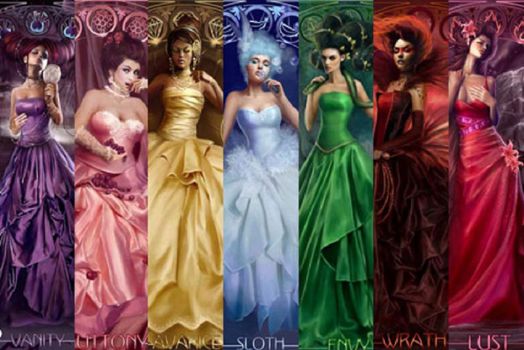
We all acknowledge that these sins are poisonous to love, but sometimes we don't recognize them.

Babies love their mothers, and mothers love their babies, but those two types of love are quite different. A baby
loves his mother because of what she gives him - protection, affection and warm tits - while a mother loves her
baby in spite of what he demands from her.
What do you want from your lovers? Do you want them to love you? To show you respect? To share your values?
To be honest, attentive, affectionate, faithful, committed? Then what you feel is baby-love, not the real thing.
That's OK, unless you're over 30 - then it's time to grow up. Real love is about what you give, not what you
get.
The funny thing is that many people in their thirties do decide they need to love selflessly, so they get a
pet or have children. Children and pets deserve our love no matter what they do, so we can love them unconditionally
without feeling we're being taken advantage of. It's too bad these people can't bring themselves to love their lovers
the same way.

Fairy tales end with "and they lived happily ever after". The lucky people in the stories finally found their other
half, and now they're complete. But that's not how real life works, for two reasons.
The first is that we all need many more than just one other person in our lives - we need lots of people:
friends, lovers, coworkers, customers, and strangers whose lives connect with ours even if we never meet them. The idea
that one other person can give you everything you need is a dangerous fiction, because it puts them under intense
pressure to do the impossible, and they will never live up to your expectations.
The other reason is that nobody else can complete you - you have to complete yourself. Love is not like two
damaged towers leaning against each other - it's like a bridge between sturdy towers. If you're not good on your own,
then the most you can expect from someone else is mutual dependency, and that's not love.
Coupling up like a pair of shoes doesn't lead to fulfillment, it leads to isolation. We are only here on this planet
for a short visit, and there are lots of things to see and do. But you'll get the most out of life if you make an
effort to get close to many other people - they're the most interesting things here!

As human beings, we're constantly trying to balance two opposing goals: to distinguish ourselves from everyone
else, and to connect with everyone else. The former is the search for identity, driven by your
ego, and the latter is the search for intimacy, driven by your heart.
It's great if you're ambitious, if you want to improve yourself and be the person you always wanted to be. But
that's not what your love life is for! Your love life is for intimacy, not identity. As a rule of thumb, if you
are approaching your love life with intention or expectation, it's not love.
So if you find yourself waiting for the kind of lover you deserve, the one who will make you feel like a prince/ss,
if you show off what your lover does for you or gives you, if you always want to go out as a couple, if your friends
tell you your lover isn't or wasn't good enough for you, then you're confused. That isn't what love is about, at all
. Be ambitious in your career, or in your pastimes, but not in your love life!

Demanding sexual fidelity is a form of possession; it reduces your lover to a piece of property. Jealousy is for
insecure losers. Both are based on your ego; neither is compatible with love.
Monogamy isn't natural for humans (or most mammals). We evolved as a species that, like our close relatives the
chimpanzees and bonobos, uses sex for much more than making babies. Gorillas have sex less than 20 times for each
pregnancy; humans more than 1000 times! Back when we were nomads, women had sex with most of the men in their tribe as
as part of normal social bonding.
So what happens if you try to be monogamous? You lose interest in sex, since we are aroused by novelty. You resent
your partner for the lost opportunities. And most of us cheat, and the dishonesty destroys trust and intimacy. And you
get nothing in return for your sacrifice, nothing at all.
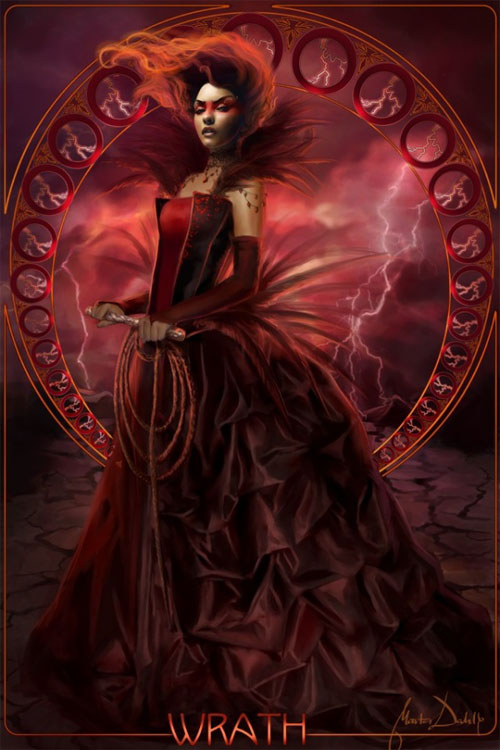
Traditional relationships are contracts: an exchange of promises. When you make a promise, you undertake an
obligation. You don't need an obligation to do something you want to do, so you're promising to do something you won't
want to do, namely stay together. Is that really what you want - to stay together when you don't want to?
Friendships, on the other hand, involve no commitments. If you make your friends unhappy, they'll leave you. So you
don't! Because of that, friendships are the longest and deepest relationships of our lives.
Your love relationships will be deeper and last longer if you treat them as friendships, not commitments. There is
no role in love for obligation.
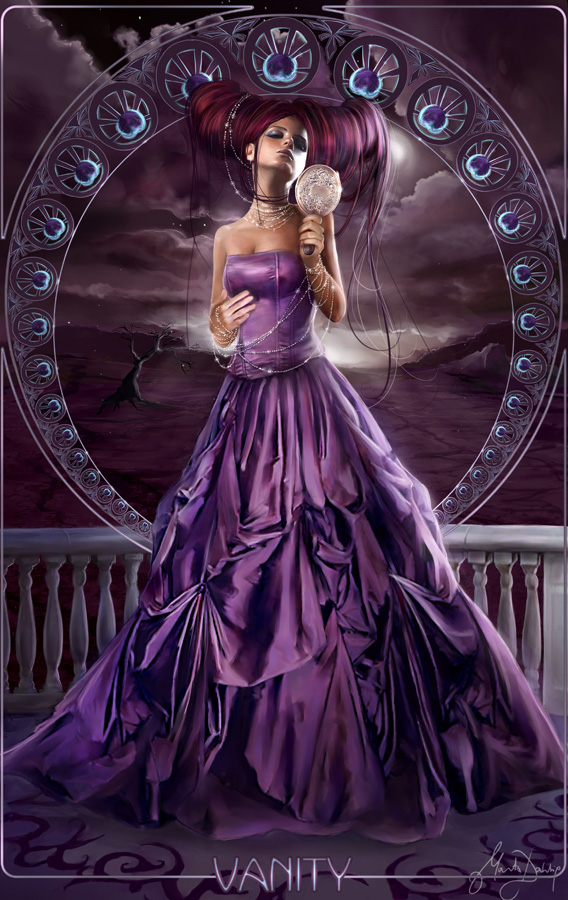
Most of what's involved in growing up and becoming part of adult society is learning what's expected of us and how to
behave. And that's a very good thing - without it, civilization would fall apart. So we want you to do what you're
supposed to do, to live up to other people's expectations.
But that's not love - that's just playing a role: the devoted spouse, the perfect couple, the happy family.
That's just pretending.
If you're insecure, it probably makes you feel pretty good to be doing what your friends and family expect you to do.
But in the end, it's not them you have to satisfy - it's the tiny little voice of your heart, not your loud ego. If
you're convinced that what you have is all you deserve, if you don't think you have the right to ask for more, then
you're trying to silence your inner voice. And that's not love.

As you may have noticed, we're in the middle of a huge transition in human society, the third one in our history.
The first one happened about 10,000 years ago, when we gave up our nomadic lifestyle and settled down. Because
raising crops and livestock is a huge investment of time, we invented the idea of property, and then we had to invent
inheritance, and then paternity, and then female fidelity, and so we invented marriage, in which women are another form
of property, like land, livestock and slaves.
Then, when the Industrial Revolution came along about 250 years ago, everything changed again. The workers in the
factories, mines and mills weren't slaves; they were employees who freely chose to exchange their labor for money. And
the role of women also changed: they also went from being property to being employees. This marked the first time their
opinion was considered important, and so we changed marriage so that husband and wife are united by consent. When people
talk about traditional relationships, this is what they mean.
And now, since about the end of the Second World War, we've started a new phase in our history. The balance between
employers and employees has become much more equal, with some employees becoming subcontractors or vendors with multiple
clients, and others receiving bonuses or stock options - they're becoming peers. Likewise, feminism has made
women equal partners in marriages, and the church and legal marriage are no longer important.
And traditional marriages have completely fallen apart, gone the way of slavery and the divine right of kings. They
just don't work well any more. Of course, some of them work, or at least they seem to work. But most of them
don't work well, even if the couple stays together. That's not somebody's fault: the fact is, the world has changed ...
for the better!
Many people have trouble accepting that. They see the past as a Golden Age, ignoring the famines, plagues and wars
that bedeviled it. And they see traditional relationships as the gold standard, notwithstanding the widespread
unhappiness that led to the social revolutions of the 60s.
For example, many women call themselves traditional, but they would never accept the second-class status of women
that prevailed in that era, at work and in the home. They call themselves traditional, but they would never accept the
mistresses, concubines and prostitutes that men enjoyed in traditional relationships. They call themselves traditional,
but their interests and ambitions extend far beyond the home and family, the role to which women were restricted in
traditional relationships. We want much more than we used to!
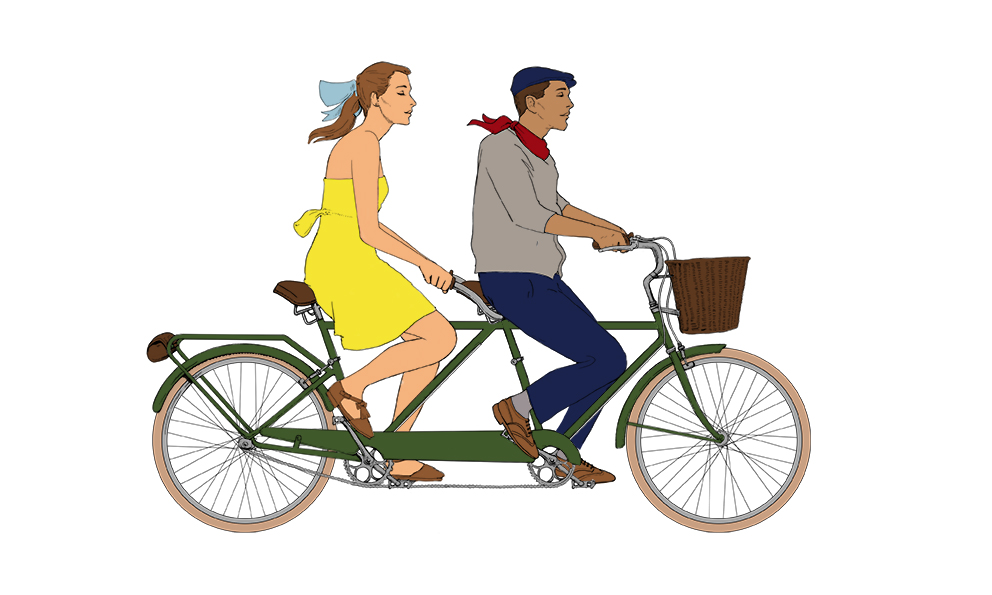 The classic "bicycle built for two" represents traditional relationships. On the positive side, you're very publicly a
couple, and the woman in back doesn't have to worry about much. On the negative side, she's just a passenger with a
pretty uninteresting view, even if she pedals a little.
The classic "bicycle built for two" represents traditional relationships. On the positive side, you're very publicly a
couple, and the woman in back doesn't have to worry about much. On the negative side, she's just a passenger with a
pretty uninteresting view, even if she pedals a little.
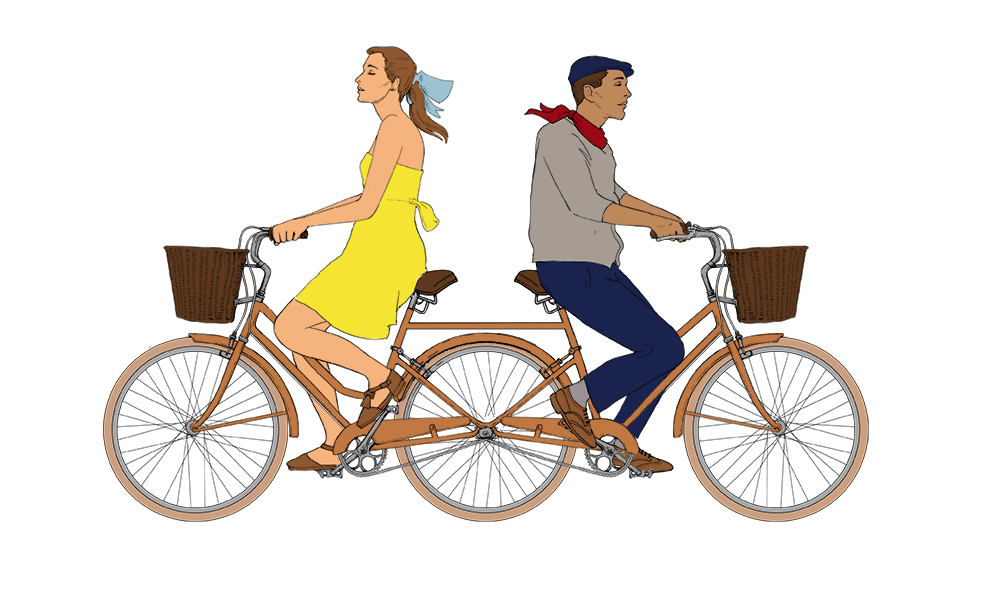 What most women want nowadays is, in fact, a new experimental type of relationship in which both partners enjoy
the privileges that men used to have. They want to be men! They want a relationship that serves their interests,
not just one in which they serve to advance their husband's interests. And they should have it!
What most women want nowadays is, in fact, a new experimental type of relationship in which both partners enjoy
the privileges that men used to have. They want to be men! They want a relationship that serves their interests,
not just one in which they serve to advance their husband's interests. And they should have it!
But that approach only works as long as both people's interests are well-aligned. When those interests diverge, the
options are to be unhappy or to split up. And that's what we see around us. This new experimental type of relationship
has failed about as completely as it could have, and it's time to try something else.
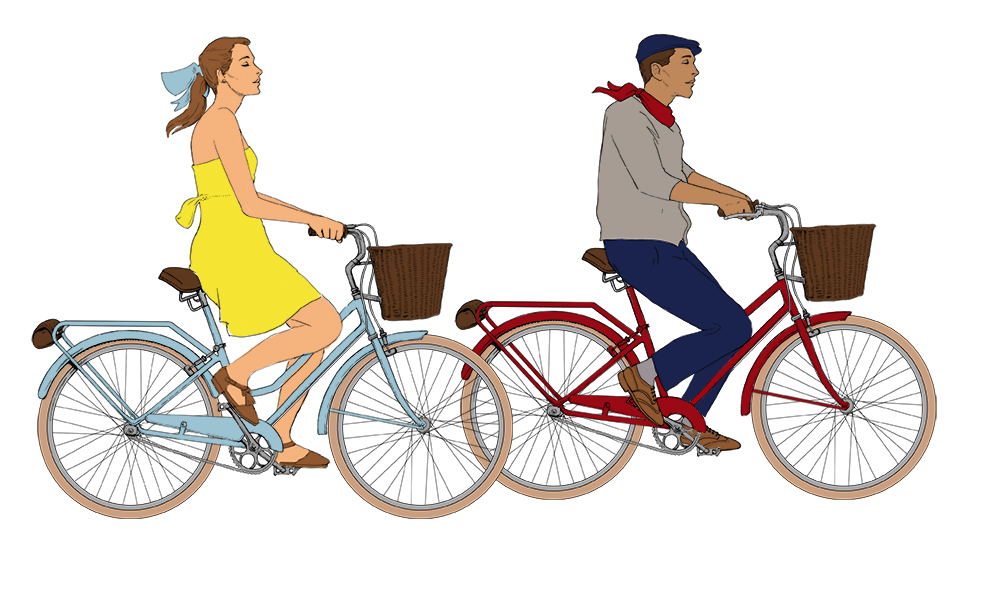 In a modern, feminist relationship, each partner is independent. They ride together when it suits them, and when
it doesn't, they can choose their own route and even ride with others! They appreciate what each has to offer, but
they're not critical of shortcomings. In other words, they're friends!
In a modern, feminist relationship, each partner is independent. They ride together when it suits them, and when
it doesn't, they can choose their own route and even ride with others! They appreciate what each has to offer, but
they're not critical of shortcomings. In other words, they're friends!
This type of relationship is much more challenging for women, and it also
requires them to confront the disapproval of their family and friends. But many women are tired of being just
passengers in life, and they're ready to ride their own bicycles.
 The classic "bicycle built for two" represents traditional relationships. On the positive side, you're very publicly a
couple, and the woman in back doesn't have to worry about much. On the negative side, she's just a passenger with a
pretty uninteresting view, even if she pedals a little.
The classic "bicycle built for two" represents traditional relationships. On the positive side, you're very publicly a
couple, and the woman in back doesn't have to worry about much. On the negative side, she's just a passenger with a
pretty uninteresting view, even if she pedals a little.








 What most women want nowadays is, in fact, a new experimental type of relationship in which both partners enjoy
the privileges that men used to have. They want to be men! They want a relationship that serves their interests,
not just one in which they serve to advance their husband's interests. And they should have it!
What most women want nowadays is, in fact, a new experimental type of relationship in which both partners enjoy
the privileges that men used to have. They want to be men! They want a relationship that serves their interests,
not just one in which they serve to advance their husband's interests. And they should have it!
 In a modern, feminist relationship, each partner is independent. They ride together when it suits them, and when
it doesn't, they can choose their own route and even ride with others! They appreciate what each has to offer, but
they're not critical of shortcomings. In other words, they're friends!
In a modern, feminist relationship, each partner is independent. They ride together when it suits them, and when
it doesn't, they can choose their own route and even ride with others! They appreciate what each has to offer, but
they're not critical of shortcomings. In other words, they're friends!